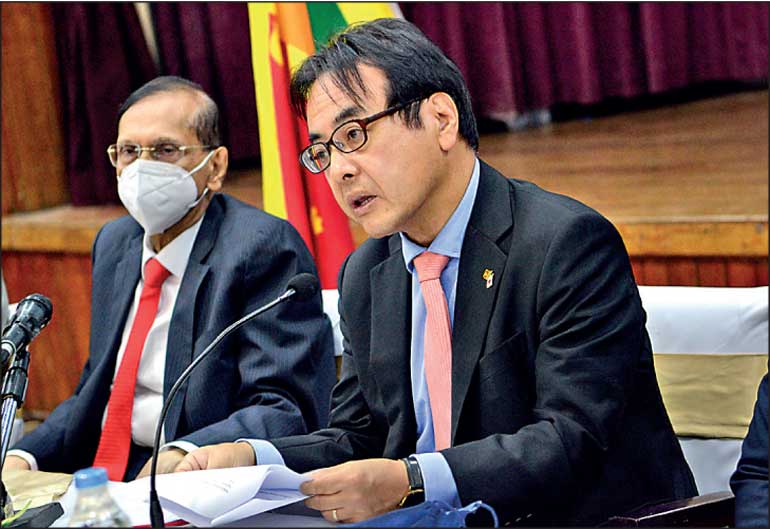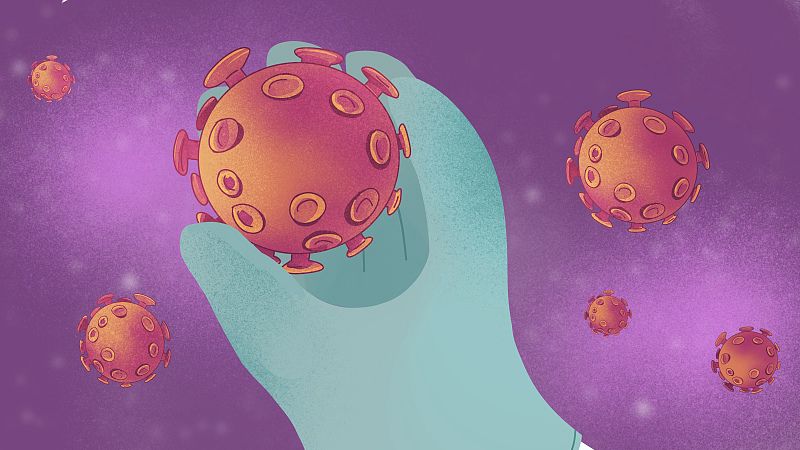Covid-19 has infected more than 247 million people and killed over 5 million globally. Here are the virus-related updates for November 1.
Global Covid-19 deaths pass 5M in less than 2 years
The number of people who have died from the Covid-19 has exceeded 5 million worldwide in less than two years, according to Johns Hopkins University.
Data from the US-based school showed more than 246.7 million have been infected by the virus that emerged in China in December 2019, and has since spread to every corner of the world.
With nearly 46 million infections and over 745,800 deaths, the US remains the country with the highest number of infections and deaths.
Putin asks army to help fight pandemic as cases spiral
President Vladimir Putin has said that Russia may need the army’s help to build field hospitals as Russia battles a surge in infections that has led to a nationwide workplace shutdown.
“The situation in the country is very difficult,” Putin said in remarks to Defence Minister Sergey Shoigu and other top brass.
“More than 40,000 cases (a day). This has never happened.”
Jon Bon Jovi tests positive, cancels concert
Jon Bon Jovi has tested positive during a rapid test just before he was set to perform a concert in Miami Beach.
An announcer took to the stage to give the crowd the bad news just before Saturday night’s concert at Loews South Beach was set to begin, WSVN in Miami reported.
Bon Jovi, 59, and his bandmates took rapid tests just before the concert and Bon Jovi tested positive. He is fully vaccinated.
Greece reports record high daily infections
Greece has recorded 5,449 new infections in the past 24 hours, authorities said, the highest single-day figure since the pandemic began early last year.
Another 52 people died over the past day, taking the total to 15,990 among 747,595 cases.
Netherlands to impose new curbs as infections jump
The Netherlands has imposed new restrictions this week in a bid to curb a recent surge in infections, health minister Hugo de Jonge said.
“We can’t escape having to take new measures”, De Jonge said.
“The number of Covid-19 patients in hospitals is rising fast.”
South Korea eases curbs, imposes vaccine passports
New rules aimed at moving South Koreans toward “living with Covid-19” have came into effect, with the easing of a range of curbs and the introduction of vaccine passports at high-risk venues such as gyms, saunas and bars.
The switch of focus comes as more than 75 percent of the country’s population has been fully vaccinated.
The first phase of the revised rules is due to last for a month, with plans to scrap all restrictions by February.
Singapore may see 2,000 Covid-19 deaths annually
Singapore could see as many 2,000 Covid-19 deaths annually over time, mainly among the elderly, but it was focused on avoiding excess mortality.
Janil Puthucheary, a senior minister of state in parliament, made the remarks on Monday as the country battles its biggest surge in infections.
At 0.2 percent Singapore’s Covid-19 case fatality rate is similar to the rate of deaths from pneumonia before the pandemic struck, said the minister.
It is also lower than other countries where cases surged before vaccination, he said.
“But it does mean that over time, the absolute number of deaths from Covid-19 will rise despite the best possible medical care,” he said.
Puthucheary did not specify for how many years that estimate might apply.
Russia reports 1,155 deaths from Covid-19
Russia has reported 1,155 additional virus-related deaths and 40,402 new cases in the past 24 hours.
The Russian capital brought in its strictest Covid-19 related lockdown measures in more than a year on Thursday as nationwide one-day pandemic deaths and infections hit new highs amid slow vaccination take-up across the world’s biggest country.
Sri Lanka rolls out booster jabs
Sri Lankan authorities began to roll out Covid-19 booster shots to frontline workers as the South Asian nation’s top medical association warned of a possible virus surge.
Pfizer booster jabs will be given initially to workers in the health, security and travel sectors, before including those above 60 years of age, the health ministry said on Monday.
About 62 percent of Sri Lanka’s 22 million people have been fully vaccinated, according to the ministry’s statistics.
The number of Covid-19 patients and deaths have increased during the last week compared to one week ago.
Hopes high as tourists touch down for Thailand re-opening
Overseas tourists began pouring into Bangkok and the holiday island of Phuket as Thailand kickstarted its tourism industry after 18 months of Covid curbs.
Thai authorities have given the green light to vaccinated tourists from over 60 “low-risk” countries to skip hotel quarantine, providing the sector a much-needed lifeline.
Bangkok’s Suvarnabhumi airport and Phuket’s international terminal were the first on Monday morning to receive visitors, with mostly European tourists greeted by staff dressed in personal protective equipment to process their documents.
The coronavirus pandemic hammered the kingdom’s tourism-reliant economy, which last year saw its worst performance since the 1997 Asian financial crisis as arrivals dwindled more than 80 percent.
Australia eases international border restrictions for first time in pandemic
Australia eased its international border restrictions for the first time during the coronavirus pandemic, allowing some of its vaccinated public to travel freely and many families to reunite, sparking emotional embraces at Sydney’s airport.
After 18 months of some of the world’s strictest coronavirus border policies, millions of Australians are now free to travel without a permit or the need to quarantine on arrival in the country.
Mexico reports 1,446 cases
Mexico’s health ministry reported 1,446 new confirmed virus cases and 89 more fatalities, bringing the country’s overall death toll from the pandemic to 288,365 and the total number of cases to 3,807,211.
Officials have said the ministry’s figures likely represent a significant undercount of both cases and deaths.
Brazil sees 130 more deaths
Brazil recorded 130 new deaths and 6,761 coronavirus cases in the last 24 hours, the Health Ministry said.
Nearly 608,000 people have died from the virus in Brazil, official data show, the second highest official total in the world after the United States
White House press secretary tests positive, Biden negative
US President Joe Biden has tested negative for Covid-19, a White House spokeswoman said.
The spokeswoman, speaking to reporters on board Air Force One, said the PCR test was taken as part of entry requirements for attendance at the COP26 conference in Britain.
White House press secretary Jen Psaki tested positive on Sunday, saying in a statement she had last seen President Joe Biden on Tuesday.
Source: TRTWorld and agencies

 News4 days ago
News4 days ago
 Business7 days ago
Business7 days ago
 Business7 days ago
Business7 days ago
 News6 days ago
News6 days ago
 Business6 days ago
Business6 days ago
 News7 days ago
News7 days ago
 Sports7 days ago
Sports7 days ago
 News3 days ago
News3 days ago






















